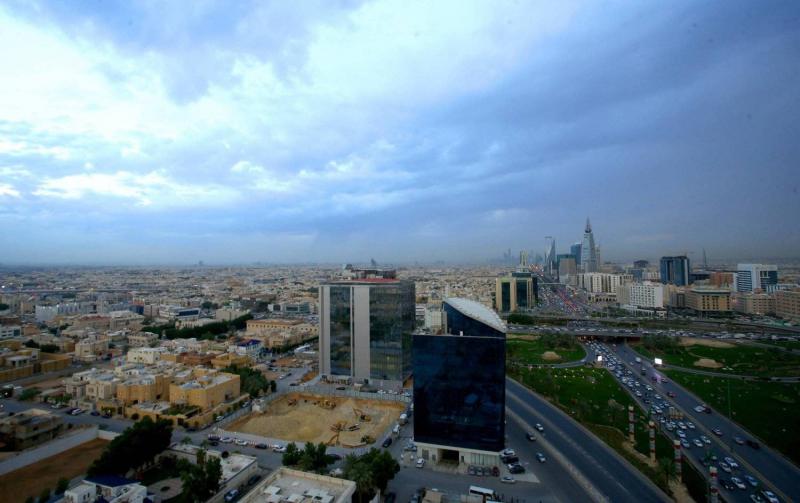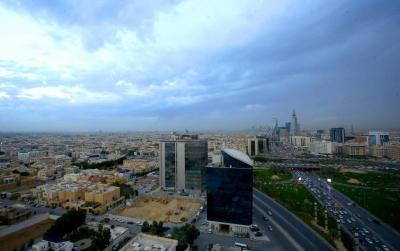The Kingdom of Saudi Arabia has successfully secured its place at the forefront of emerging smart digital societies, surpassing many of its global peers in developing its digital infrastructure and disseminating modern technologies across various fields, particularly advanced communication networks. In its quest to establish itself as a regional and global digital hub, the Kingdom has embarked on an ambitious journey to build a "10 Gigabit Society," which serves as a fundamental pillar in sustainable development based on the latest digital technologies.
The "10 Gigabit Society" opens vast horizons of opportunities and benefits for the Kingdom; this advanced telecommunications infrastructure is set to transform various aspects of society and business by providing ultra-fast connectivity capabilities with speeds reaching 10 gigabits per second, with a low latency response time considered the best to date, and extensive coverage. This will empower many vital sectors such as smart education, healthcare, smart cities, and manufacturing, thereby enhancing the quality of life for the Kingdom's residents.
It is expected that internet connectivity at 10 gigabits per second will bring about a radical transformation in building the digital economy in the Kingdom, contributing to enhancing efficiency and productivity across various sectors and industries, and providing a conducive environment for innovation that serves ambitions for future development and business growth while improving service quality. Furthermore, the advanced digital infrastructure is an attractive factor for foreign investments in diverse sectors of the Kingdom’s economy, in line with its ambitious Vision 2030.
Companies operating in the Kingdom will be able to make significant strides towards digital transformation and improve their operational efficiencies by leveraging high-speed internet to deliver high-quality digital services and provide immersive customer experiences. The "10 Gigabit Society" paves the way for developing advanced services, particularly in broadband areas such as cloud computing and virtual and augmented reality. A prominent example of this transformation is the initiative for Riyadh to become one of the "10 Gigabit Societies," promising an enhanced standard of living and increased digital productivity throughout the capital.
In this context, the Ministry of Communications and Information Technology recently issued a working paper outlining several key enabling factors to ensure success in building the "10 Gigabit Society." Based on a series of regulatory changes, the report highlights ways to provide a favorable business environment that enhances digital excellence in the Kingdom through the concerted efforts and coordination of all stakeholders, supporting research, development, and innovation activities, as well as forming partnerships with international parties to build the necessary ecosystem for the flourishing tech sector across various companies, regardless of their nationality. Additionally, developing technical digital talent and building robust monitoring and evaluation systems are priorities on the road to establishing gigabit societies and advancing the deployment of modern digital technologies.
These developments are guided by Saudi Vision 2030, which is committed to achieving sustainable digital development by recognizing the immense potential of digital technologies in accelerating social and economic growth while minimizing negative environmental impacts. The "10 Gigabit Society" initiative aligns perfectly with this vision, as it will contribute to rationalizing energy consumption and reducing carbon emissions by deploying fiber optic networks and utilizing green data centers powered by renewable energy.
Partnerships and leveraging experiences are crucial for achieving societal prosperity and stimulating digital transformation; thus, the Kingdom is striving to enhance open partnerships between the public and private sectors to achieve the best possible outcomes from developing the "10 Gigabit Society." Alongside Western companies, Chinese technology firms have emerged with notable growth as valuable contributors to the information and communications technology sector and sustainable development. An example is Huawei, a global leader in innovating and deploying fifth-generation and advanced fifth-generation technologies, which contributes to achieving the Kingdom's sustainable development goals through its advanced solutions and products from its Digital Power business unit.
Many major Chinese companies have established their positions in the global clean energy landscape. According to a report by the International Energy Agency, last year saw global renewable energy capacity additions reach 510 million kilowatts, with China contributing more than half—an enormous contribution to global renewable energy production. Huawei's new Digital Power business unit exemplifies technology companies that have successfully adjusted their business strategies to align with sustainability requirements, focusing on stimulating the spread of low-carbon energy solutions by integrating digital technologies and power electronics to enhance clean energy capabilities.
Addressing the need to reduce the carbon footprint while relying on digital technologies involves enhancing energy systems and improving their efficiency to tackle challenges related to providing clean energy sources. By leveraging advanced information and communications technology, including data analytics, predictive maintenance, and power electronics technologies, such companies will play an active role in transforming the energy sector and achieving carbon neutrality goals, steering the sector toward a more sustainable digital future.
Today, the coverage rate of fifth-generation technology in the Kingdom has reached 53%, with this percentage exceeding 94% in the city of Riyadh. Additionally, the number of fifth-generation towers per 10,000 people stands at about 4.4, a figure likely to increase, indicating that the Kingdom is currently making significant strides toward establishing the necessary foundations for building a connected, digital, and smart society.
The value of the information and communications technology sector in the Kingdom is expected to reach $53 billion by 2025, driven by massive projects, smart cities, healthcare, education, and tourism initiatives. The "10 Gigabit Society" will undoubtedly stimulate this growth, creating new opportunities not only for telecommunications operators but also for various other sectors and industries including small and medium enterprises, enhancing smart lifestyle experiences.
Saudi estimates indicate that the cumulative impact of the information and communications technology sector's contribution to the GDP will reach 358 billion Saudi riyals by 2030, with the "10 Gigabit Society" adding 1% to this figure. Today, Saudi Arabia stands as a beacon of inspiration for countries interested in adopting sustainable digital development approaches, as it continues its concerted efforts to build a "10 Gigabit Society" and implement various initiatives and projects that rely on sustainable technology as a core development axis. Through its steadfast commitment and open strategic partnerships with all countries, along with the spirit of innovation it fosters among its citizens, the Kingdom is working to transform its digital landscape and contribute to the global vision for a smarter, more connected future. The "10 Gigabit Society" is not just a technological leap; it is also a testament to the Kingdom's pioneering efforts to build a sustainable and prosperous digital world.




